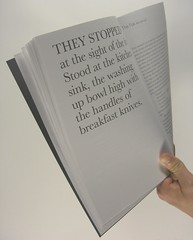CALL FOR SUBMISSIONS
As curator of our local gallery of the National Gallery of Writing, The Writers of East Brunswick High School, I am pleased to announce a publishing opportunity for the students and faculty of East Brunswick High.
This gallery is dedicated to promoting works written by the students and teachers of East Brunswick High School, New Jersey. We invite works of traditional and contemporary poetry, flash fiction (under 1000 words), short-short stories (under 2500 words), personal essays (under 2500 words), and works of creative non-fiction (under 2500 words).
To submit to this gallery for consideration, use this link:
http://galleryofwriting.org/galleries/55353
from The National Council of Teachers of English:
“Whether we call it texting, IMing, jotting a note, writing a letter, posting an email, blogging, making a video, building an electronic presentation, composing a memo, keeping a diary, or just pulling together a report, Americans are writing like never before. Recent research suggests that writing, in its many forms, has become a daily practice for millions of Americans. It may be the quintessential 21st century skill. By collecting a cross-section of everyday writing through a National Gallery of Writing, we will better understand what matters to writers today—and when writing really counts. Understanding who writes, when, how, to whom, and for what purposes will lead to production of improved resources for writers, better strategies to nurture and celebrate writers, and improved policy to support writing.
America's writing will be front and center on October 20, 2009—the National Day on Writing. On that day, writers from every walk of life will pause to share their work. Communities across the nation are planning events to celebrate local writing, and NCTE will open the virtual National Gallery of Writing for all to appreciate the rich variety of work on display (the National Gallery will remain open until June 2010). A celebratory gala will be hosted by the New Yorker magazine in Manhattan to mark the National Day on Writing and to honor winners of the Norman Mailer High School and College Writing Awards”.
Wednesday, May 27, 2009
Tuesday, May 26, 2009
Call for Manuscripts
Hey kids -
Here are some contest and publishing opportunities:
The New England Shakespeare Festival Rubber Ducky Sonnet Contest:
http://newenglandshakespeare.org/sonnet_contest/ducky-guidelines.pdf
The English Journal:
Student Voices:This is a forum for students to share their
experiences and recommendations in short pieces of 300 words.
Teachers are encouraged to submit the best responses from their classes, not whole class sets,please.Individual students are welcome to submit as well. Topics are as follows:
• What nonfiction text that English teachers might not think of would you like to read in English class? (Deadline: July 15, 2009)
• What positive lessons have you learned from English class about working with other people? (Deadline: September 15,2009)
• How has logical thinking helped you out of a difficult situation?(Deadline: November 15, 2009)
Here are some contest and publishing opportunities:
The New England Shakespeare Festival Rubber Ducky Sonnet Contest:
http://newenglandshakespeare.org/sonnet_contest/ducky-guidelines.pdf
The English Journal:
Student Voices:This is a forum for students to share their
experiences and recommendations in short pieces of 300 words.
Teachers are encouraged to submit the best responses from their classes, not whole class sets,please.Individual students are welcome to submit as well. Topics are as follows:
• What nonfiction text that English teachers might not think of would you like to read in English class? (Deadline: July 15, 2009)
• What positive lessons have you learned from English class about working with other people? (Deadline: September 15,2009)
• How has logical thinking helped you out of a difficult situation?(Deadline: November 15, 2009)
Wednesday, May 20, 2009
Congratulations!
One of my favorite essayists just made the NY TImes Best Seller list with her latest release, a collection of personal essays entitled "Bad Mother".
Congrats to Ayelet Waldman - I love not only her writing style and blunt honesty, but I also love her because when I emailed her a couple of years ago, she actually emailed me back and for that entire day, I felt like a rock star.
http://www.nytimes.com/2009/05/10/books/review/Dominus-t.html
Congrats to Ayelet Waldman - I love not only her writing style and blunt honesty, but I also love her because when I emailed her a couple of years ago, she actually emailed me back and for that entire day, I felt like a rock star.
http://www.nytimes.com/2009/05/10/books/review/Dominus-t.html
Thursday, May 14, 2009
Humanities
Hey kids -
Before I forget, I wanted to take a moment to talk to you about your senior year course schedule.
So many of my awesome students from last year have been dropping by my room this week to run poems by me that they've written about themselves for a class project. They are nervous about presenting in front of their peers but their nerves are secondary to the excitement they are feeling as they anticipate the moment this week when they will get up in front of a crowd and reveal their most sacred thoughts - some kids for the first time EVER ! Many of those kids view this experience as one of the culminating moments of their entire high school experience!
Wow - that's intense and amazing and it's all because of a course called Humanities.
If you haven't already signed up to take Humanities your senior year, RUN to guidance ASAP and make sure it's on your schedule.
It's a great course taught by 3 awesome teachers (yeah, you heard me - three. That means you don't see the same ole face day after day for an entire year but instead rotate amongst three geniuses)!
The course examines ideas from different perspectives in order to encourage and foster a holistic approach to viewing the world around you; basically, it teaches you how to move away from a singular view by exposing that viewpoint to the a multitude of arenas such as art, philosophy, classics, history, current events, literature, poetry, culture, sociology. This in turn pumps up your jam, making you wiser and giving you lots of fodder for future late night dorm room discussions.
I heart Humanities and I heart its instructors just as much so get it on your 2009-2010 schedule! NOW!
Before I forget, I wanted to take a moment to talk to you about your senior year course schedule.
So many of my awesome students from last year have been dropping by my room this week to run poems by me that they've written about themselves for a class project. They are nervous about presenting in front of their peers but their nerves are secondary to the excitement they are feeling as they anticipate the moment this week when they will get up in front of a crowd and reveal their most sacred thoughts - some kids for the first time EVER ! Many of those kids view this experience as one of the culminating moments of their entire high school experience!
Wow - that's intense and amazing and it's all because of a course called Humanities.
If you haven't already signed up to take Humanities your senior year, RUN to guidance ASAP and make sure it's on your schedule.
It's a great course taught by 3 awesome teachers (yeah, you heard me - three. That means you don't see the same ole face day after day for an entire year but instead rotate amongst three geniuses)!
The course examines ideas from different perspectives in order to encourage and foster a holistic approach to viewing the world around you; basically, it teaches you how to move away from a singular view by exposing that viewpoint to the a multitude of arenas such as art, philosophy, classics, history, current events, literature, poetry, culture, sociology. This in turn pumps up your jam, making you wiser and giving you lots of fodder for future late night dorm room discussions.
I heart Humanities and I heart its instructors just as much so get it on your 2009-2010 schedule! NOW!
Wednesday, May 13, 2009
Modernism
Characteristics of Modernism
•Loss is a major theme in modernist works.
•The “truth” is questionable, as a common theme, and many narrators are unreliable, whereas in traditional literature it is the narrator’s job to further understanding. Also, there may be more than one narrator, showing the diversity of truth.
•More use of the first person narrative, reflecting the lack of universal truth, i.e. there are only individual truths.
•The destruction of the family unit.
•Characters may be given little or no physical description, and one or more characters is usually an "outcast."
•Authority figures are often untrustworthy, reflecting the question of truth.
•Movement away from religion.
•The reversal of traditional roles
•Ambiguous endings
•Often setting is more than just the setting (i.e. more meaning to it than just where the story takes place), or, maybe there is no setting at all
•The use of improper grammar to reflect dialect.
•Fragmentation – in plot, characters, theme, images, and overall storyline. Thus, for instance, many modernist works are not in the typical linear sequence.
In Poetry:
http://www.poets.org/viewmedia.php/prmMID/5664
In Prose:
http://www.writing.com/main/view_item/item_id/943010
In Art:
http://www.arteducation.com.au/art-movements/modernism.php
In Film:
http://www.visual-memory.co.uk/amk/doc/0092.html
•Loss is a major theme in modernist works.
•The “truth” is questionable, as a common theme, and many narrators are unreliable, whereas in traditional literature it is the narrator’s job to further understanding. Also, there may be more than one narrator, showing the diversity of truth.
•More use of the first person narrative, reflecting the lack of universal truth, i.e. there are only individual truths.
•The destruction of the family unit.
•Characters may be given little or no physical description, and one or more characters is usually an "outcast."
•Authority figures are often untrustworthy, reflecting the question of truth.
•Movement away from religion.
•The reversal of traditional roles
•Ambiguous endings
•Often setting is more than just the setting (i.e. more meaning to it than just where the story takes place), or, maybe there is no setting at all
•The use of improper grammar to reflect dialect.
•Fragmentation – in plot, characters, theme, images, and overall storyline. Thus, for instance, many modernist works are not in the typical linear sequence.
In Poetry:
http://www.poets.org/viewmedia.php/prmMID/5664
In Prose:
http://www.writing.com/main/view_item/item_id/943010
In Art:
http://www.arteducation.com.au/art-movements/modernism.php
In Film:
http://www.visual-memory.co.uk/amk/doc/0092.html
Tuesday, May 5, 2009
The Old Curiousity Shop
Today's lesson plan focused on identifying moments of irony in the Orwell essay Shooting an Elephant however a moment at the beginning of class lead to a bit of irony of our own - how ironic, don't ya think?
In the essay, a young Orwell makes a decision based on his fear of embarrassment and as a result, commits a gruesome, murderous act.
In my classroom, I see kids make decisions based on curiosity, apathy, impulse, anger, ennui, fear, and so many more emotions.
What I would like to see my students base their decision making on is what I wish young Orwell would have based his on - logic.
I know it's not always easy to think logically in a heated situation but remember, control of oneself is the greatest power one can ever possess so exercise your logic and I guarantee you'll be happy with the results.
In the essay, a young Orwell makes a decision based on his fear of embarrassment and as a result, commits a gruesome, murderous act.
In my classroom, I see kids make decisions based on curiosity, apathy, impulse, anger, ennui, fear, and so many more emotions.
What I would like to see my students base their decision making on is what I wish young Orwell would have based his on - logic.
I know it's not always easy to think logically in a heated situation but remember, control of oneself is the greatest power one can ever possess so exercise your logic and I guarantee you'll be happy with the results.
Monday, May 4, 2009
Shooting an Elephant
Here is a link to the essay.
http://www.online-literature.com/orwell/887/
Periods 8/9 and 12 ONLY : Please answer the questions below for homework, due Tuesday.
Periods 2 and 4 ONLY: Quiz on the reading tomorrow.
Shooting an Elephant: Day 1
a. How does Orwell feel about the British presence in Burma? How does he feel about his job with the Indian Imperial police? What are some of the internal conflicts Orwell describes feeling in his role as a colonial police officer? How do you know?
b. Orwell wrote and published this essay a number of years after he had left the civil service. How does Orwell describe his feelings about the British Empire, and about his role in it, both at the time he took part in the incident described, and at the time of writing the essay, after having had the opportunity to reflect upon these experiences? Ask students to point to examples in the text which support their view.
c. What did Orwell mean by the following sentence: It was a tiny incident in itself, but it gave me a better glimpse than I had had before of the real nature of imperialism- the real motives for which despotic governments act.
http://www.online-literature.com/orwell/887/
Periods 8/9 and 12 ONLY : Please answer the questions below for homework, due Tuesday.
Periods 2 and 4 ONLY: Quiz on the reading tomorrow.
Shooting an Elephant: Day 1
a. How does Orwell feel about the British presence in Burma? How does he feel about his job with the Indian Imperial police? What are some of the internal conflicts Orwell describes feeling in his role as a colonial police officer? How do you know?
b. Orwell wrote and published this essay a number of years after he had left the civil service. How does Orwell describe his feelings about the British Empire, and about his role in it, both at the time he took part in the incident described, and at the time of writing the essay, after having had the opportunity to reflect upon these experiences? Ask students to point to examples in the text which support their view.
c. What did Orwell mean by the following sentence: It was a tiny incident in itself, but it gave me a better glimpse than I had had before of the real nature of imperialism- the real motives for which despotic governments act.
Subscribe to:
Posts (Atom)







